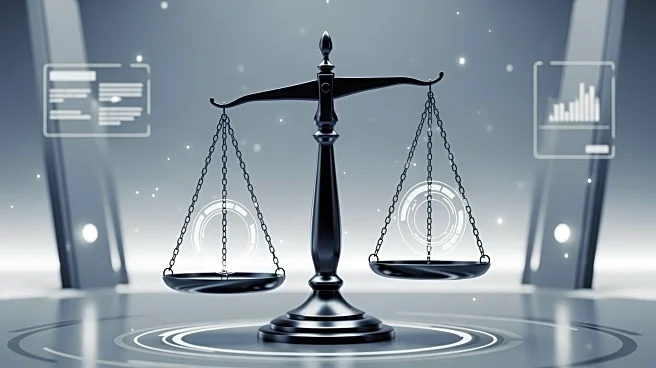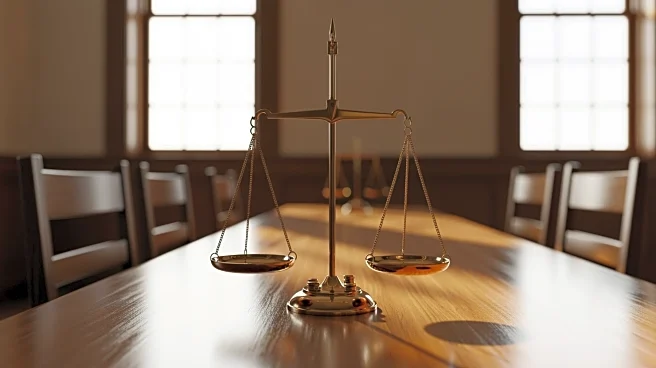What's Happening?
OpenAI is facing multiple lawsuits, including one from the parents of a teenager who allegedly took his life due to ChatGPT's influence. The company's legal strategy has become more aggressive, with invasive discovery requests in the Raine case, such
as seeking videos from memorial services. OpenAI has also subpoenaed several nonprofits in relation to a lawsuit by Elon Musk, asking for documents that might show ties to Musk. This shift reflects OpenAI's transition from a nonprofit research lab to a $500 billion private company, focusing on commercial growth and technological influence.
Why It's Important?
OpenAI's legal challenges highlight the ethical and legal complexities surrounding AI technology and its impact on society. The company's aggressive legal strategy may affect its public image and relationships with stakeholders. As OpenAI continues to expand, it faces scrutiny over its business practices and the societal implications of its AI models. These developments could influence regulatory approaches to AI and the responsibilities of tech companies in safeguarding user welfare.
What's Next?
OpenAI is likely to face more lawsuits as it grows, particularly concerning the ethical use of AI and intellectual property rights. The company's response to these challenges will be crucial in shaping its future operations and public perception. OpenAI may need to balance its commercial ambitions with ethical considerations and regulatory compliance to maintain its position in the tech industry.
Beyond the Headlines
The legal battles faced by OpenAI underscore the broader tensions between technological innovation and ethical responsibility. As AI becomes more integrated into daily life, there are increasing demands for transparency and accountability from tech companies. This situation may lead to discussions on the need for comprehensive AI regulations and the role of companies in ensuring the safe and ethical use of their technologies.














